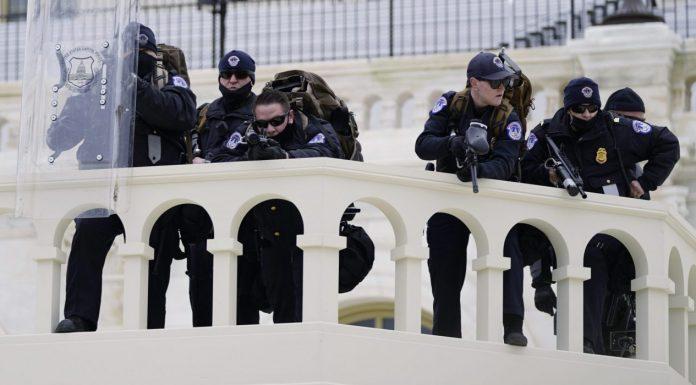(Ken Silva, Headline USA) A U.S. district judge has slapped down a challenge to the FBI’s use of a “geofence warrant” to collect location data on more than 5,000 devices at the Capitol on Jan. 6, 2021, ruling that the controversial surveillance method is constitutional.
Unlike typical warrants that authorize the surveillance of specific targets, geofence warrants allow police to collect vast troves of location data from devices within a given area in a certain timeframe. In its Jan. 6 investigation, the FBI used a geofence warrant to collect location info on more than 5,000 devices from Google—later collecting the personal information of 1,498 devices determined to likely be inside the Capitol building.
Jan. 6 defendant David Rhine filed a challenge to this mass surveillance method last October, seeking to have a federal judge suppress the FBI’s geolocation data from his case. Rhine is charged with four misdemeanor counts, including disorderly conduct and entering a restricted building or grounds.
Rhine argued that the geofence warrant was overly broad in violation of the 4th Amendment. In his motion to suppress, Rhine said the warrant was overbroad because it required Google to query a vast trove of data without probable cause “to search untold millions of unknown accounts in a massive fishing expedition.”
He also argued that there is up to a “32% chance that the user in any of this data is actually not within the radius surrounding the estimated location and could be somewhere else.”
However, U.S. Judge Rudolph Contreras ruled on Jan. 24 that the FBI’s geofence warrant was constitutional. He noted that overly broad geofence warrants could violate the 4th Amendment, but said the FBI had ample probable cause in the case of Jan. 6.
“Because the Capitol building was not open to the public on January 6 due to the counting of the votes of the Electoral College, the fact of having entered the building during the geofence timeframe itself constitutes evidence of a crime,” Contreras said.
The judge added that even if he had found the FBI’s geofence warrant to be in violation of the 4th Amendment, he still would have allowed the location data from Rhine’s device to be used as evidence.
“The Court … would not suppress the evidence obtained from the geofence warrant under the good faith exception even if it had found that the Warrant lacked probable cause,” he said.
Government’s use of geofence warrants has risen dramatically in recent years. Google provided the public the first glimpse of this in an August 2021 report, which revealed that the company received more than 11,500 geofence warrants from federal, state, and local agencies in 2020 alone—up from 9,000 in 2019. Google only began receiving geofence warrants in 2016, the company said.
Privacy organizations have raised alarms about government’s growing use of geofence warrants, but they were notably silent about the Jan. 6 investigation.
In a September 2021 article, the Electronic Frontier Foundation decried the ATF’s use of geofence warrants in the wake of the 2020 protests and riots in Kenosha, Wisconsin, while remaining silent on the FBI’s use of the same tactic against the Jan. 6ers.
The ACLU has also been silent on the use of geofence warrants in the Jan. 6 investigation, and has instead chosen to warn about their use to investigate illegal abortions.
“Abortion rights advocates say geofencing and keyword warrants are among their top fears for the future of digital privacy after Roe v. Wade,” the ACLU said last August. “In states where abortion is restricted, women could come under scrutiny for searching for abortion services or just being near a clinic, they worry.”
Ken Silva is a staff writer at Headline USA. Follow him at twitter.com/jd_cashless.

